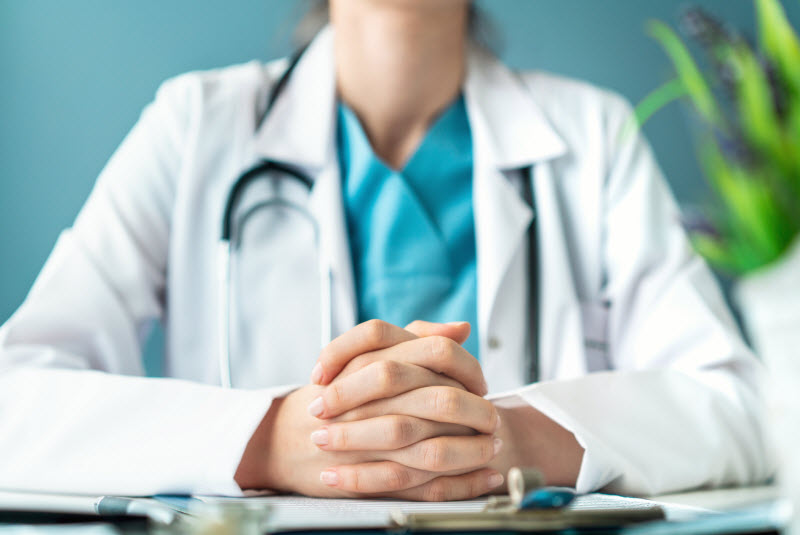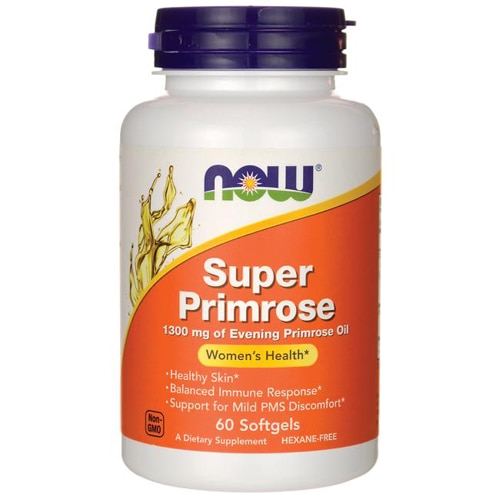The adage holds true: Professionals of every stripe are asked a standard set of questions daily. As a
naturopathic doctor who, like others in her field, concentrates on holistic health, I too am asked both broad and specific questions about wellness regularly. From “why is my skin breaking out in my 40s?” to “what type of supplements should I use?”, people are tirelessly—and understandably—keen on learning how to care for themselves in a natural way.
And yet, there are five questions that pop up the most. Here they are—and the answers, and solutions—I offer.

1. How do I sail through menopause?
Menopause has taken on a cultural stigma as an era a woman ought to fear and dread. Nonsense, I say—and the first step towards not just surviving menopause but thriving during and after it is recognizing that it’s a beautiful transition and time in life. Stepping back to observe that you’ve made it this far should be congratulated, just as your body’s changes should be welcomed with curiosity, awe and appreciation.
That aside, menopause and the discomforting symptoms it sometimes brings—such as weight gain, mood swings and hot flashes—can be managed by taking charge of your adrenal health. Key to full-body health, your adrenal glands supply you with the vim and vigor you need to power through nearly every task. They also enhance your capacity to cope with stress and encourage youthful hormone equilibrium.
Towards this end, start taking care of your adrenals with a healthy,
whole-foods diet and stress-reducing lifestyle decisions. Why? Because stress can produce a surplus of the hormone
cortisol, which can result in adrenal fatigue, exhaustion and sleeplessness, which may exacerbate menopausal symptoms. For additional support, consider supplementing with pantothenic acid, American ginseng and
vitamin C—all can influence the health of your adrenals while also reducing menopausal symptoms.
†
Lastly, you can sail through menopause by tackling the sexual issues that may surface during this time. Decreases in the hormones that support the tissues of your pelvis and sex organs may lead to dryness and less tautness in your connective tissues and muscles. All of this can contribute to a diminished sex drive.
Recharge your libido with regular exercise, adequate rest and a sweet-toned acceptance of your own personal renaissance.
2. Why am I always so tired—and what can I do to increase my energy?
With the exception of four-year-olds, we all want
more energy—that, in our present world, is a given. And yet, despite the number of sleep and meditation apps on iTunes—and the collective acceptance that we need rest to reach optimal health—60 percent of Americans say they’re more tired than ever before (an issue that has increased since
the pandemic hit).
If this sounds familiar, I’d first suggest a full physical exam to rule out any underlying health problems such as anemia, a thyroid problem or sleep apnea. If your assessment comes back clear, take an honest look at your lifestyle. Are you eating more processed foods than whole, organic eats? Are you choosing Netflix at the end of the day over a bike ride around your neighborhood? Are you imbibing more than you should? (Note that alcohol does a number on your ability to have a sound night’s sleep.) And are you pausing throughout the day to take care of yourself, or are you stressed to the point of utter exhaustion? (This last point is particularly essential, as stress wreaks havoc on those aforementioned adrenal glands and throws off other systems in the body, resulting in chronic fatigue and reduced get-up-and-go energy.)
With all of these lifestyle choices amended, I would then suggest looking into herbal supplements. Rhodiola rosea, for example, is an esteemed adaptogen that works with your body to—literally—help you adapt to stress. Ashwagandha, another adaptogen, contains two compounds, alkaloids and lactones, that organically boost well-being and offer nutritional support during times of mental and physical angst.
Siberian ginseng, on the other hand, has been used for centuries in Russia and China for its potential to naturally encourage energy. (To which we all might say,
yes.)
3. How do I know what a good, quality supplement is?
Supplements are a booming industry—so much so, it’s expected to reach 56.7 billion by 2024. For a good reason, too: Supplements can fill in nutritional deficits, encourage wellness and serve as a form of health insurance. And with it being such a huge industry, there are plenty of supplements from which to choose. The question is, which ones are actually
solid?
First, know that not all supplements are created equal. As Consumer Report reminds us, “supplement manufacturers routinely, and legally, sell their products without first having to demonstrate that they are safe and effective.” Meaning, it’s vital that you do your homework. Find out about the transparency and integrity of the company from which you may be purchasing supplements. Shy away from products that are made outside of the U.S., as
toxic ingredients and prescription drugs (read: scary) have been found in supplements manufactured in places such as China, India and Mexico. In addition, be sure to check alerts and advisories, as supplements are regularly under review, and ensure the supplement you’ve chosen has a GMP (Good Manufacturing Practices) certification on its label. This indicates that the supplement has been tested for both quality and contaminates.
4. How do I age well so that, when I hit my senior years, I feel great?
Aging isn’t something to bemoan; rather, like menopause,
aging should be celebrated. At the same time, it’s perfectly understandable why this is one of the most often-asked inquires I receive. We
want to feel youthful, energetic and vibrant as the years tick by. The good news? It’s entirely possible.
Again, one of the ways to achieve this is by recognizing the good that comes with age. Studies show that aging often leads to decreased anxiety, greater confidence, increased intelligence, fewer allergies, more zest for life—even better sex.
Next, empower yourself by taking radical responsibility of your health.
Stay on top of the annual screenings you need, from mammograms for women to prostate exams for men. Take care of your skin—after all, it’s your body’s large organ—with daily usage of sunblock and a turning away from skin-harmers such as smoking and alcohol, both of which constrict your blood vessels, which means that your skin receives less of the radiance-boosting oxygen and nutrients it needs.
Keep in mind that nutrition plays a significant role in how your body and brain age (and at what speed); to this end, maintain a diet that’s light on sugar and processed foods and big on organic, fresh vegetables and fruits, whole grains, and lean protein. Staying active is just as central to feeling well in your senior years, especially since you lose muscle mass as you age. This can be counteracted with resistance workouts such as with bands, weights, and your own body weight (hello, plies). Additionally, prioritize your social life. Doing so will not only nurture your heart and soul but, as a
study out of Harvard suggests, may give you a 50 percent greater likelihood of survival than those who are isolated or have poor social relationships. The theory? “The buffering hypothesis holds that people who enjoy close relationships with spouses, family, and friends receive emotional support that indirectly helps to sustain them at times of stress and crisis,” Harvard says. What’s more, “family and friends may encourage an individual to make healthier lifestyle choices and to seek medical care when illness strikes.”
5. How do I detoxify from environmental toxins?
Environmental toxins—from naturally-made compounds such as lead and mercury to manmade chemicals like BPA and pesticides—can take a toll on the human body by contributing to chronic diseases and disrupting sensitive biological systems. To eradicate, or at least, diminish these toxins, evaluate what you come into contact with on a regular basis and do a through-and-through cleansing. Toss out cleaning products that contain ammonia, chlorine and sodium hydroxide and replace them with
all-natural household cleaners (or make your own with lemon juice, vinegar, and water).
Examine your personal care products and ditch anything that contains “secret” ingredients such as formaldehyde (a known carcinogen),
phthalates, methylene glycol, mercury, quaternium, parabens—and any other ingredient that makes you raise an eyebrow. Opt for green
personal care and beauty products instead, and know that this extends to your hair products.
Stop purchasing and consuming disposable water bottles, which not only cause environmental damage but, due to their inclusion of BPA, acts as an endocrine disruptor and may lead to obesity, infertility and more. Further, buy organic produce whenever possible, get your home’s water and air checked for the presence of radon (a chemical that can lead to lung cancer), grow plants in your home to help detoxify your immediate environment, stay away from second-hand smoke, and avoid eating heavy-metal-rich seafood, such as marlin and swordfish.
Finally—and this is a recurring theme in
all of the answers I provide, on and off the page—stress less about what environmental toxins with which you inadvertently come into contact. A life well-lived, and holistic health, is all about living not in fear but in grace and happiness.
†These statements have not been approved by the Food and Drug Administration. These products are not intended to diagnose, treat, cure or prevent disease.




